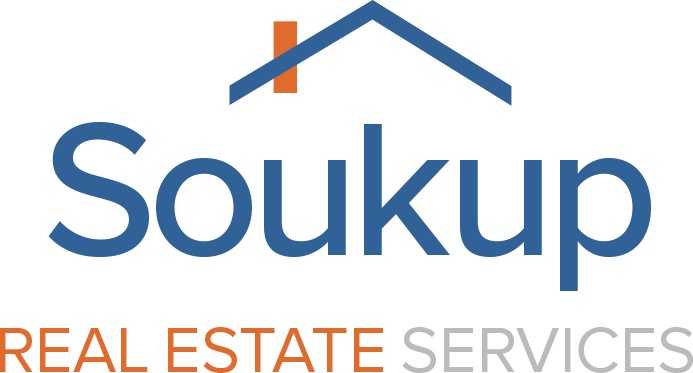Okay, so you’ve figured out your first years actual returns. You invested $67,000 and had net cash flows of $3,300 or a 5% cash on cash return. Not bad! Remember, you also got the benefit of renters paying the mortgage and principal down for an entire year. Your house MAY have appreciated and you also got to take advantage of depreciation expenses on your tax return! Wow! Real estate is pretty cool!
That is year 1. You can no longer (unless you decide to update/renovate your property and invest money into it) calculate a cash on cash return. It’s done, gone, expired. Moving forward, though, it is important you calculate what the return of your property is. But how do you do that? How about, the Return on Equity calculation.
Return on equity looks at how much EQUITY is in your investment property comparatively to what the net cash flow is annually.
How do you calculate this?
Year 1:
Property Value: $250,000
Loan Balance beginning of Year 1: $187,500
Cash Flow End of Year 1: $3,300
You can calculate return on equity in year 1, but that does not hold as much weight as cash on cash return because you will have closing costs and other fees in year 1, so you want to know what your return is based on actual cash invested.
Year 2 (Assuming an initial loan balance of $187,500 30 Year Fixed Loan at 4.5%):
Property Value: $262,500 (5% Appreciation)
Loan Balance Beginning of Year 2: $184,732
Estimated Cash Flow: $3,900 (you bumped rents $50/month)
RETURN ON EQUITY EQUATION:
Return on Equity = Net Cash Flow / Equity in Property
Equity in Property = Value – Loan Balance***
$77,768 = $262,500 – $184,732
$3,900 / $77,768 = 5%
So not bad, after a year, you are maintaining the same return on your asset.
The reason this is important is because your equity is your investable money. You want to make sure the money you have available is working for you to the best of its ability. And if 5% (not including the other benefits) is not the best of its ability, maybe you should consider moving your money.
***When calculating your equity in real estate. Yes, it is as simple as Value -Loan Balance. BUT, when you want to sell real estate, you are going to have to pay (generally) real estate commissions and closing costs, which I usually ESTIMATE about 8% total based off the purchase price. So your equity is actually your (Value – Cost to sell (8%))-Loan Balance.
Future Years
In Year 2, your return on Equity was still touching that 5% return. With all the other advantages of real estate, that sounds pretty good to me.
We typically don’t HOLD real estate investments for only 2 years though. We like to look at a 3, 5, 7 and 10 year hold with investment real estate.
Fort Collins is a prime example of a market where investors return on equity has really decreased over the last few years. Why? Because the appreciation of the market has been so crazy that unless you are jacking your rents everywhere (which is not a great policy because you’ll kill yourself with the cost of turning over and finding new tenants) your return on equity will be dramatically less than when you initially bought the property.
Lets look at the decreasing rate of your return on equity.
In this example, we did include the cost to sell of 8% to give a more realistic number of your return on equity. The gross receipts increased at 5% annually as did the property value. The gross expenses increased at 3% annually.
As you can see, your return on equity is decreasing every year. That is because although your rents are increasing, they are not increasing as dramatically as the value. In a market like Fort Collins where property values are soaring due to the demand, you are gaining so much equity that your return is not matching it.
This example assumes the market only is increasing at 5% every year. We all know from the late 80’s, early 2000’s and the Great Recession that is not necessarily the case. The market does have down cycles which, if your rents remain the same would increase your return on equity calculation
Why is Return on Equity so Important?
Some investors will keep rents the same year after year after year because they have great tenants and would prefer they stay. They feel that if they increase their rents, it may push their renters out.
That isn’t necessarily a bad idea. Turnover costs are going to be some of your highest expenses. BUT, over those years that you didn’t raise rents, the cost of labor, materials, insurance and property taxes did increase. The property appreciated in value and your principal has been paid down a few thousand dollars.
If you did a calculation to see what your return on equity is, it may shock you to see how low it is. Is your money producing the return you desire? If yes, keep chugging along, if no, than decide how you want to change that.
Calculating your estimated return on equity every year is a good practice. It does not have to be exact, in fact it won’t be exact at the beginning of the year. It will be an estimate, based on which, you can decide if you want to continue to hold your investment, or potentially sell. At the end of the year, look back and compare how close you were to your estimate. Adjust moving forward.
A financial adviser will reallocate your portfolio annually to try and get you the highest returns possible based off your goals. You are your own financial adviser when it comes to real estate. Is your return on equity satisfying your goals?

